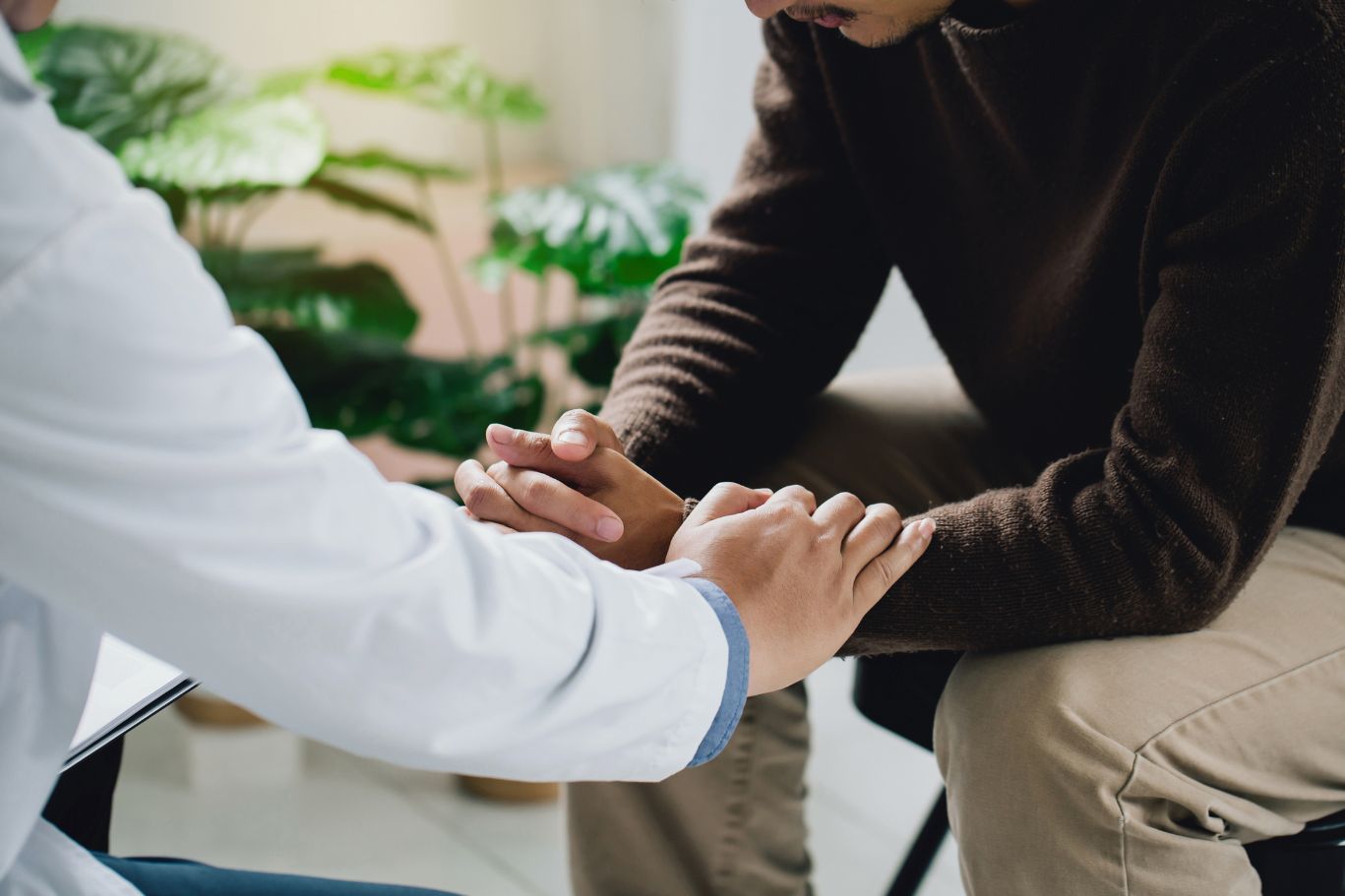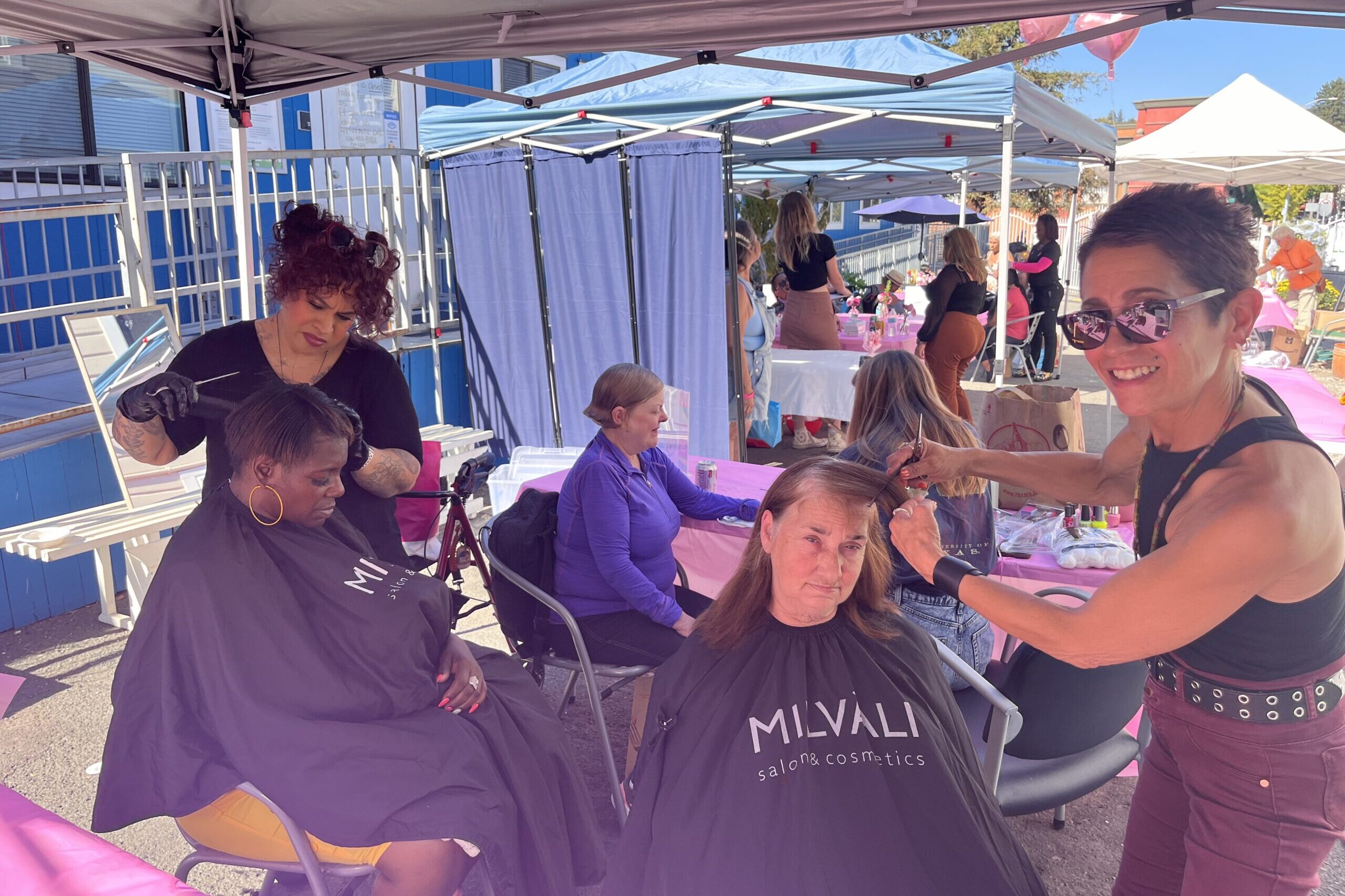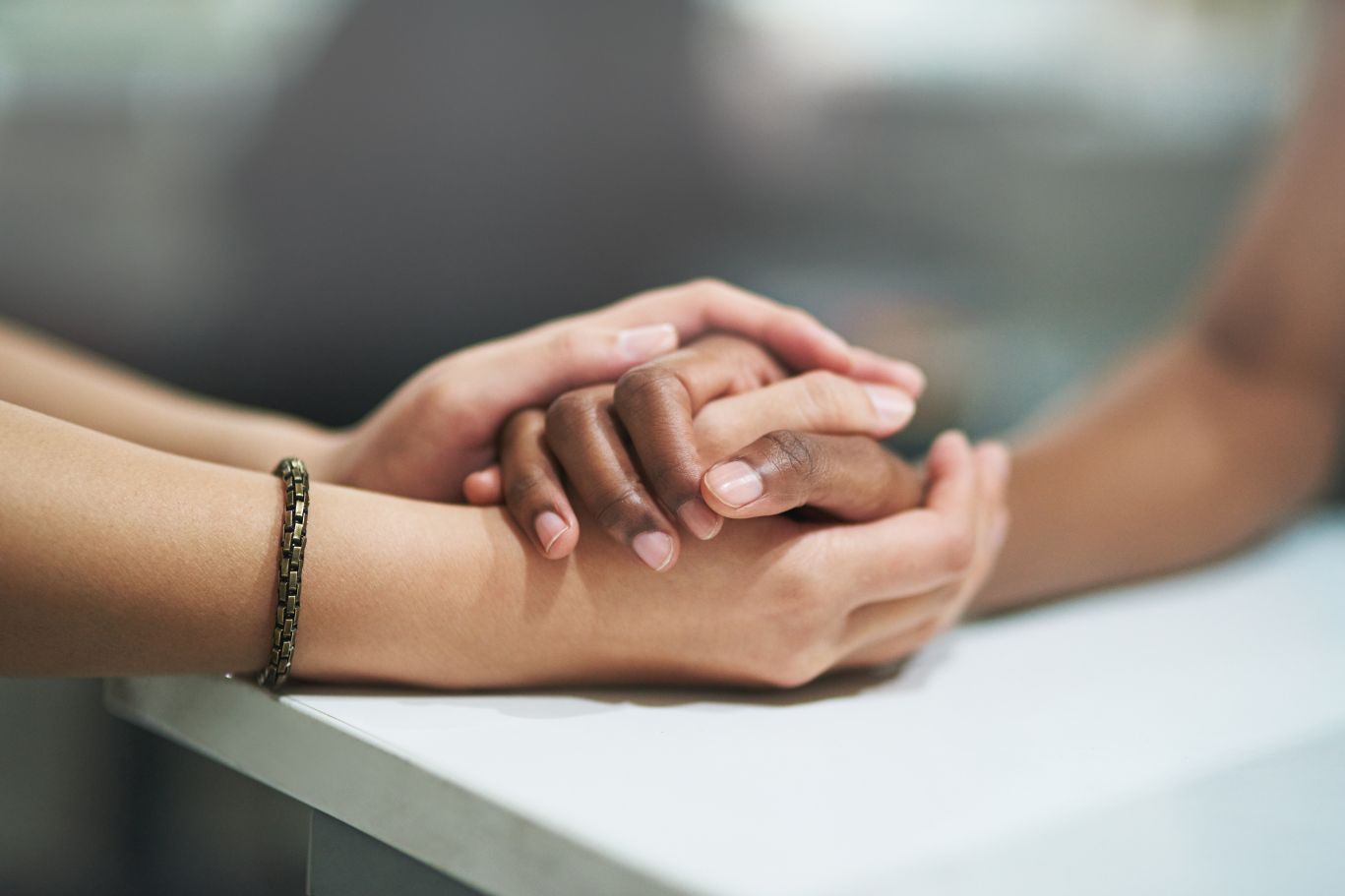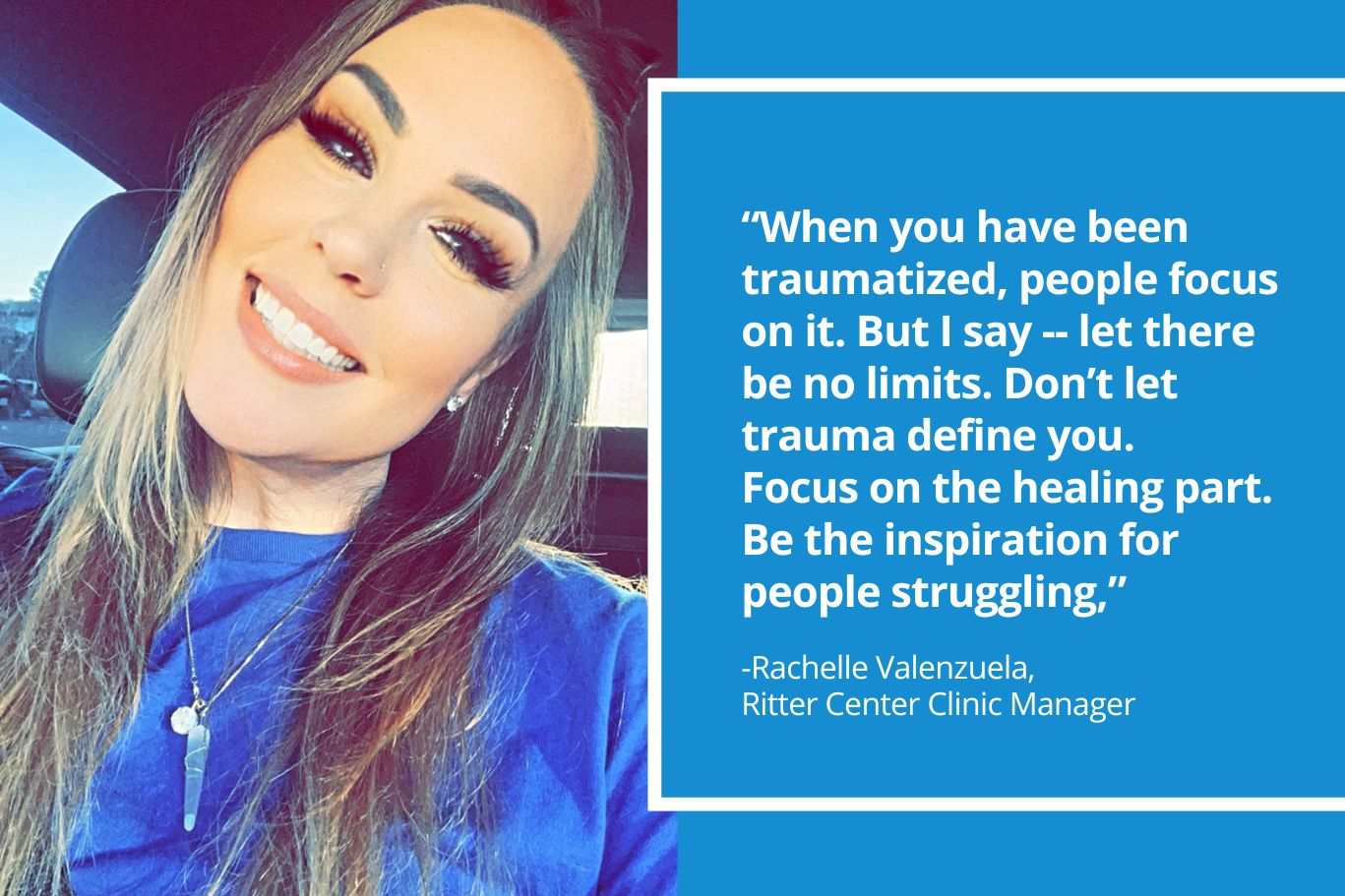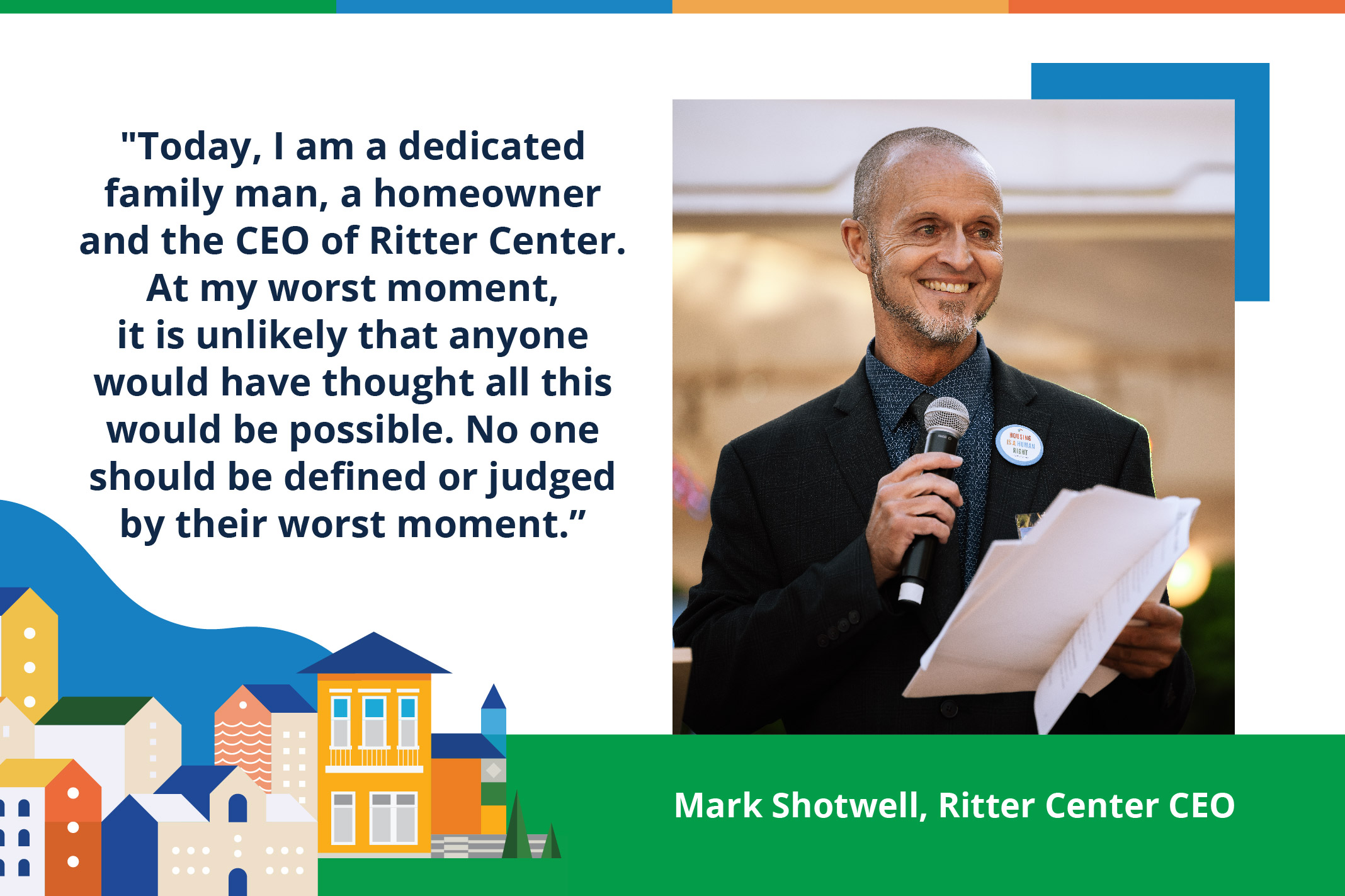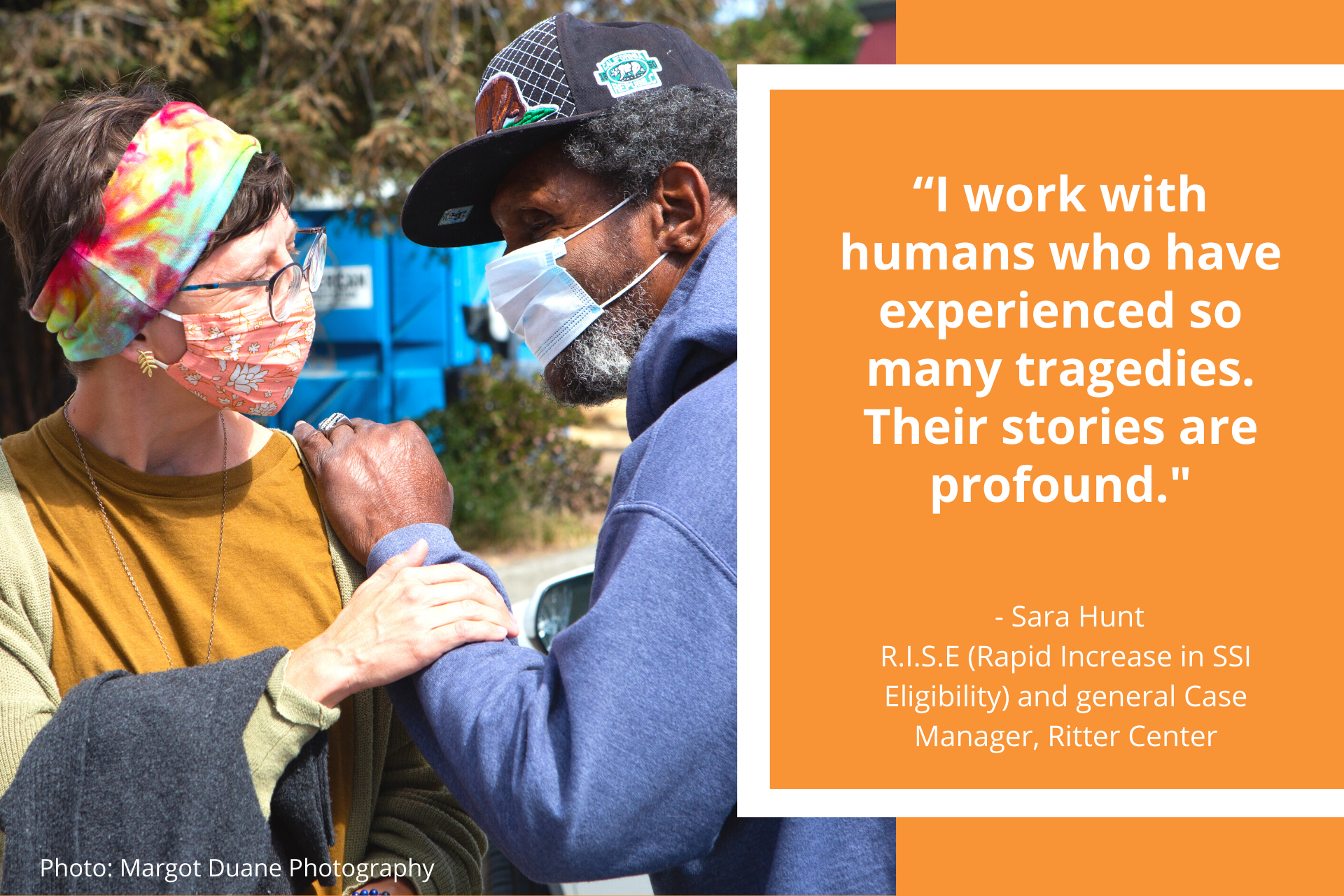
“Imagine that level of sacrifice. You have to do anything you can to help your family survive.” – Sara Hunt
Sara Hunt works as the R.I.S.E (Rapid Increase in SSI Eligibility) and general Case Manager at Ritter Center. Sara works with people experiencing housing instability, mental health crisis, physical health issues, and poverty. As a professional in social work, she knows all too well that there are many barriers to people looking to obtain Social Security and disability. Applications can take years, appeals can be filed, and not having a permanent address are often factors that get in the way. For example, sometimes an applicant is called for an evaluation in San Jose, but they may live in San Rafael. Without access to a car and challenges with public transit, it can be all but impossible to get to an appointment.
“There is a misperception that people can easily live on general assistance or welfare, but the reality is that the amount is a mere $387 a month in Marin, and we are located in a higher paying county. Also, once you start to work, this financial support ends, and a little known fact is that you have to pay it back,” explains Sara.
“When I first started working in social service fields, I was volunteering at a day service center in Santa Rosa called The Living Room. That was my first experience in working with women and children. I also worked with youth. I came to this role with personal knowledge of some of the struggles people face in life. I have experienced being poor myself, along with struggling with barriers. I recognize how fortunate I am that despite these circumstances I have overcome so many obstacles. The women that I worked with had been homeless for a really long time, and were simply trying to survive. They had to resort to shelter hopping, sadly, because shelter stay time limits would come into play. The worst part is that they would have to rotate through shelters without developing the ability to move on from shelters. It’s hard to find a job, let alone maintain a job, while homeless,” shares Sara.
Imagine how something as simple as taking a shower before your work day can become a complicated hours long process. Some would look to find a mobile shower or try to access a low-cost gym membership in order to shower. It is all too easy to take for granted things in our daily lives, such as waking up take a shower in a bed with a safe place to undress and redress.
“Being a female in the world where we have to be cautious walking down the street by ourselves is one thing. But can you imagine sleeping on the street as a woman? How scary and unprotected you are as a woman! Not because we are weaker, but because we are seen as weaker. Sadly, we are much more likely to have someone do something to us because we are not seen as stronger. It’s such a vulnerable place to be. Women on the streets are doing the best they can. Some have children and have to leave those children with family members. They have to choose to sleep on the street, but they tell themselves that as long as the kids are safe, they are OK,” describes Sara.
“Imagine that level of sacrifice. You have to do anything you can to help your family survive.
It is hard sometimes to tell somebody I am sorry, but I have no options for you. It is unthinkable but in some instances, I have had to do just that. What a difficult thing to say to a vulnerable human being. Ritter is amazing in what we can offer onsite in one place. Everyone can get their medical care, check in with a case manager and try to get their life back together. It’s hard though. I am continually blown away by my female clients’ strength.
One woman is in her early forties and has been in and out of incarceration and residential treatment. There were a lot of indicators, all the preexisting traumas that indicate this person might likely struggle or have mental health issues. Unfortunately, it becomes a label. If she’s applying for disability or housing, she has an arrest record. She has all of these barriers. When I first met her at Ritter Center, she was so worn out and burned out by the system. She came to Ritter saying that nothing would ever work for her. She came only because her probation officer made her come,” remembers Sara.
She started to come in a couple of times a month, even just to tell me how her day had been that day. Now, thanks to Ritter Center, she is getting housed. It is the first time that she has a little bit of hope. I saw the transformation. She went from sunken, skinny, fading away, and being aggressive with people, along with an understandable fear of sexual assault from living on the streets. But now, she opens up more, and shows up more literally and figuratively. She stands up taller now and has a lightness about her that’s new and powerful.
It’s easier to address any issues around drug use and mental health challenges once she has a roof over her head. This is critical: the stability that she doesn’t have to rely on another person for survival as she has in the past. Women group together on the streets for protection. But now it is going to be a space just for herself. The power of that space can’t be overstated.
I work with humans who have experienced so many tragedies. Their stories are profound. If you don’t address life traumas and find ways to move forward, then, instead you just live in it.
They had master’s degrees, and successful careers, and then something happened. It could have been a mental breakdown, or something else. Whatever it was, it doesn’t matter. What matters is getting help. The first time they come into Ritter Center, it is not their best day. But we can sit with people in that. Everyone’s story is their own. People feel comfortable enough to come on their worst day and that’s where the healing can begin,” explains Sara. “Sometimes people ask me why people experiencing homelessness don’t ‘make better choices’ and I share that what often happens is that the two choices you have In front of you are not necessarily great choices,” urges Sara. “In that case, it is hard to make a great choice. You make the best choice with what you have. Most humans don’t wake up and say I want to be homeless and be disregarded by most of humanity. They are simply focused on surviving every day. The truth is anyone can become homeless if you don’t have a safety net, and a safety net is a privilege not everyone gets to have.”
Another example is when someone lives on SSI, that individual is limited to $2,000 in funds and assets in order to receive SSI. So if you can’t save more than $2,000, what happens to you when something devastating happens? One Ritter Center client’s wife passed away and understandably he wanted to pay for her funeral expenses. He was disabled and elderly, and so he used his money to pay for funeral costs and didn’t pay his rent. This was the choice he had and it was an impossible choice: forego burial costs or rent.
Another challenge a person living on the streets may have is not having all of their cognitive abilities, a support network, family members, a therapist, or access to healthcare. Even human beings under the best of circumstances don’t reach out for help when they need it even with all of the resources available.
Saying someone doesn’t want help disregards the barriers in place keeping people from accessing from help. There is an unconscious bias against homeless people even when they seek out help, whether from the ER or a shelter. It is hard to trust anyone, but especially in a state of heightened vulnerability.
The pandemic highlighted the stark disparity in housing and now we think about the home in a way we didn’t before COVID. Community is everything. Sara notes that the homeless community overall tries to respect and care for each other:
“If I’m searching for a client, I can ask their buddy to relay a message. They support one another in a way that is unique. They protect each other in a way that is so beautiful. Imagine if we all protected each other in society this way regardless of differences.”
